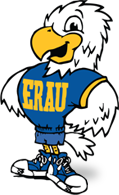Greetings Everyone,
If spoken of, it is whispered. It causes sweaty palms and incites feelings of dread. It intimidates even the best of students. Ladies and gentlemen, this phenomenon is known as The Gauntlet. The Gauntlet consists of three classes for engineering students, ES 202 Solids, ES 204 Dynamics, and ES 206 Fluids. These classes are considered to be difficult and people say that they will “kill” your GPA.
No fear, I have taken these classes and have picked up a few strategies on how to manage these courses. First off, try to take ES 201 Statics as soon as you can in your academic career. Since all of The Gauntlet classes require statics, this will allow you to space out the classes. ES 202 Solids is the easiest of the Gauntlet, so it should be paired up with one of the two harder courses, ES 204 Dynamics or ES 206 Fluids. By spitting up the classes, they become much easier to manage. Another way to manage The Gauntlet is to take all three classes together, but to make sure that you do not have any labs in the same semester. Labs, especially PS 253 Physics 3 Lab, have a tendency to take up a lot of time in the form of labs that last over 2 hours and formal post lab reports due every week. I actually used strategy two to manage The Gauntlet. Even with my full time job as a Resident Assistant, I was able to keep those classes from “killing” my GPA.
The difficulty in these classes is not the work load, but rather remembering how to approach certain problems and what strategies were used. Solids went pretty well for me. My professor, even though he was forgetful, allowed us to have a note card for each test containing all of the necessary equations. I ended up having a study group for Dynamics. It was immensely helpful because working out problems together and verbalizing strategies really helped me to remember how to do problems on the tests, as one professor told me, “Collaborate and graduate.” My most difficult of the three was Fluids. I had a very good professor who would create her own questions on exams, which were much more complex than questions in the text book. Luckily, this professor gave a lot of extra credit on the fluids project; my group received a 128%, which helped my grade for the class.
Academics were the reason why I did not write during the school year.
Some of you may remember that I wrote a student blog last summer when I went to Italy with the Study Abroad Program from ERAU. If you would like to read about those experiences, as well as where the Study Abroad Office is located and who works there, please go to this address: https://riddlelifeflorida.erau.edu/author/freemab3/.
Currently this summer, I am taking a few summer classes, EE 335 Electrical Engineering 1 and EE 336 Electrical Engineering Lab 1.

A typical circuit for EE 335 Electrical Engineering 1, adapted from the EE 336 Electrical Engineering Lab 1 Manual.
Summer courses are by far one of the best kept secrets of ERAU. Summer is divided into two sessions, Summer A and Summer B. Each session allows students to take up to 6 credits worth of classes. Even though there is class Monday through Thursday and sometimes Friday, the work load isn’t too bad since a lot of the professors want to relax over the summer too. One of my professors believes that one poor test grade should not affect a student’s overall grade for a class. Therefore, there are no tests, repeat, we do not take tests. Instead, this professor has a list of skills that he would like us to learn during his course. We are given multiple chances to prove our knowledge in the form of in class exercises and once we prove to him twice that we understand and can effectively apply the skill to a problem, we receive a check mark for that particular skill. If we receive 90% or more of our check marks, we receive an A for the class and do not have to take the final. Granted, some of the other summer professors may not be as understanding as my professor, but they do tend to be more lenient.
I really enjoy summer classes because I have a lighter course load, less homework, fewer tests, three day weekends, and I still get to have a summer full of sunny outdoor fun, lounging about indoors watching television, reading, and hanging out with friends. Probably the best part about taking summer classes is that it allows me to have to take fewer classes during the fall and spring semesters and it allows the Dual Degree Program to better fit into my four year plan.
The Dual Degree Program is under the Study Abroad Program and allows aerospace engineering students to receive one or two degrees from Embry-Riddle and a degree from EPF, a well-respected engineering university in France, depending on the track chosen. The main website for the program can be found here: http://daytonabeach.erau.edu/degrees/study-abroad/dual-degree/index.html. EPF’s corresponding link for the Dual Degree Program: http://www.epf.fr/en/international/double-degrees. Students from ERAU take a summer intensive language course during Summer B in France before their junior year in order to prepare them for a full academic year at EPF where all the courses are taught in French. I will have more information about the Dual Degree Program in a later entry. Au revoir!



